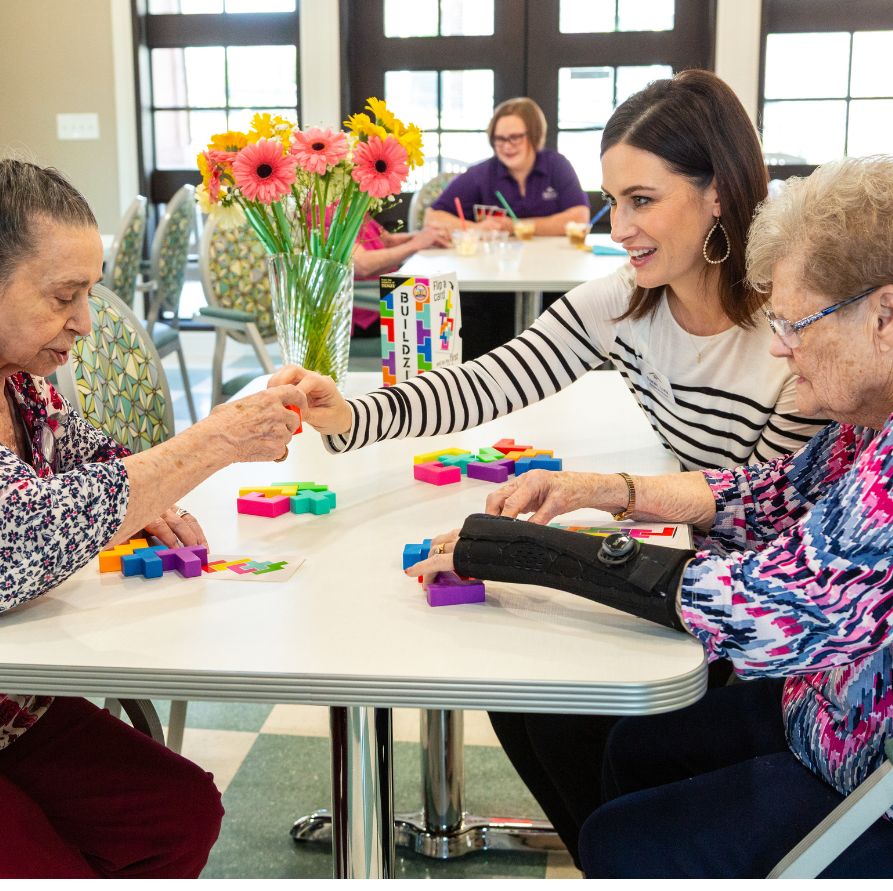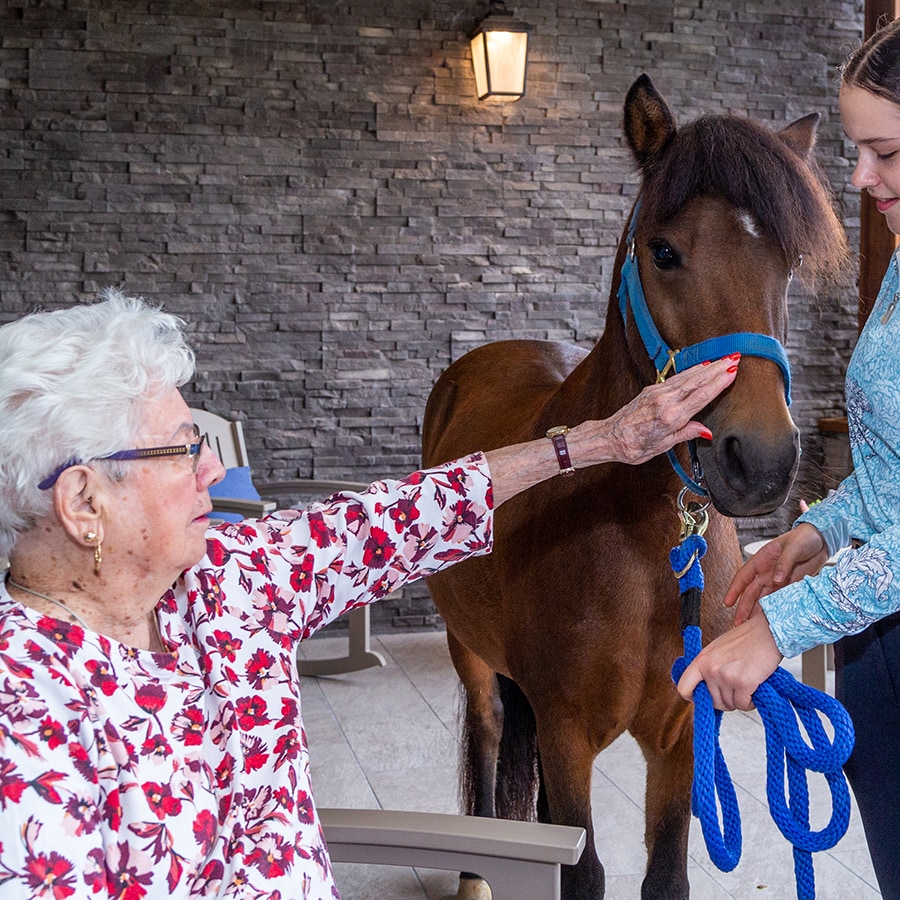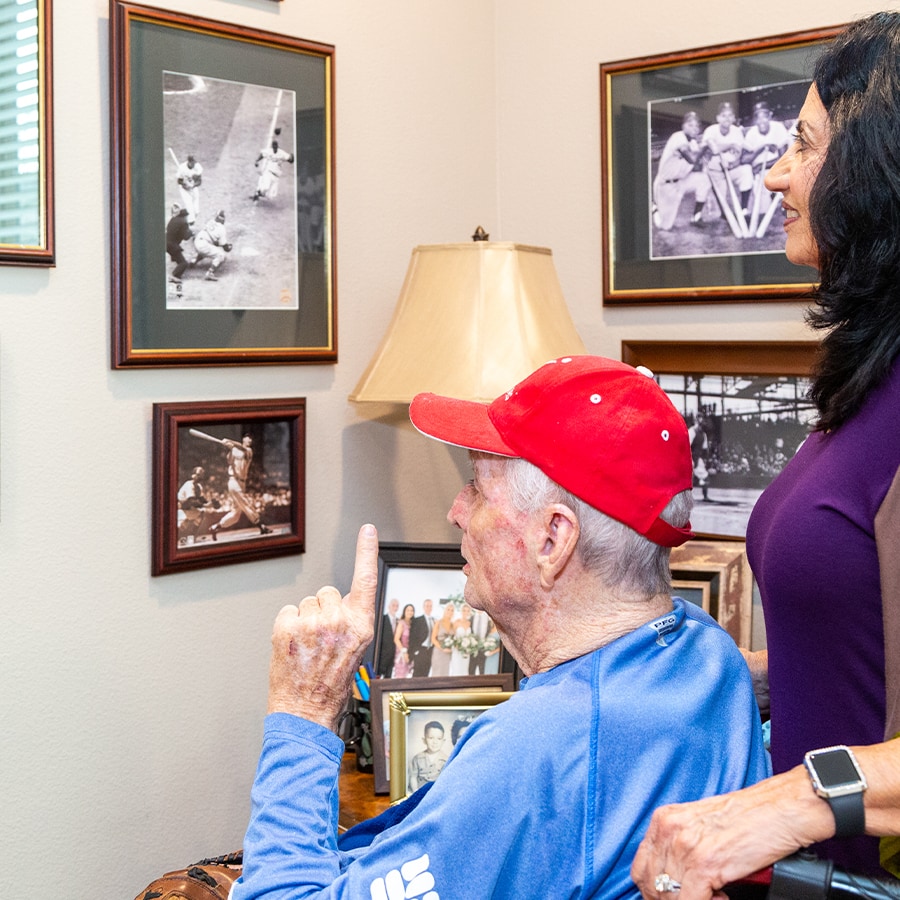Key Takeaways
- Approach conversations with patience, understanding, and empathy.
- Use simple, clear language and speak slowly to aid communication.
- Maintain a calm and reassuring tone to create a comforting environment.
- Focus on the present moment and avoid asking complex questions about the past.
- Be attentive to nonverbal cues, such as facial expressions and body language.
- Foster a sense of connection by engaging in familiar or meaningful topics.
- Remember that providing emotional support is just as important as the conversation itself.
How to Talk to a Parent Living with Dementia
Watching a parent’s communication change due to dementia is one of the hardest parts of the journey. As the condition progresses, it affects language, memory, and understanding, making conversations difficult. Memory care programs offer support to help caregivers and loved ones navigate these changes. With patience, empathy, and helpful resources, you can still maintain a meaningful connection with your loved one.
We want you to have practical strategies for navigating these conversations with grace. By understanding the changes your parent is experiencing and adapting how you communicate, you can foster more positive and compassionate interactions, strengthening your bond even as circumstances change.
How Dementia Can Affect Communication
Dementia alters the way the brain processes information, which naturally impacts communication. You might notice your parent struggling with certain things, such as:
- Forgetting words or losing their train of thought mid-sentence.
- Repeating the same questions or stories.
- Having trouble following complex conversations or instructions.
- Becoming confused about time, people, or places.
- Showing emotional responses like frustration, anger, or withdrawal.
These changes are caused by the condition itself, not by a lack of effort on their part. Recognizing these challenges is the first step toward communicating with greater empathy and effectiveness.
Strategies for More Meaningful Conversations
Adjusting your communication style can significantly improve interactions with your parent, making conversations feel less stressful and more rewarding for both of you. By being mindful of how you express yourself, actively listening, and choosing your words thoughtfully, you can foster a more positive and understanding dynamic in your relationship.
Speak with Calmness and Clarity
Use a gentle, reassuring tone of voice. Frame your questions and statements in a simple, direct way. Instead of asking a broad question like, “What would you like for dinner?” which can be overwhelming, try offering clear choices. For example, “Would you prefer chicken or fish for dinner?” This simplifies the decision-making process.
Create a Peaceful Environment
Choose a quiet, familiar space for your conversations to help your parent focus. Turning off the television or radio and minimizing other background noise can make a significant difference. A calm setting promotes a sense of security and allows them to concentrate on your interaction without unnecessary distractions.
Use Warm Nonverbal Cues
So much of our communication is nonverbal. A warm smile, gentle touch on the arm, or making eye contact can convey care and reassurance when words fall short. Your body language can help reinforce your message and let your parent know they are safe and loved.
Practice Patience

Dementia can slow down a person’s ability to process thoughts and find the right words. It’s important to give your parent plenty of time to respond. Try to resist the urge to interrupt or finish their sentences for them, as this can lead to frustration. Your patience demonstrates respect for their thoughts and feelings.
Validate Their Feelings
If your parent becomes upset or confused, it’s more helpful to acknowledge their emotions than to correct their facts. For instance, if they are worried about a long-past event as if it just happened, you might respond with, “That sounds like it was a very stressful time for you.” This approach validates their feelings and fosters a sense of trust and understanding.
Redirect to Positive Topics
When conversations become distressing or unproductive, gently redirecting your parent to positive, comforting topics can help shift their focus. Discussing happy memories, cherished hobbies, or their favorite music can create a more uplifting atmosphere. This approach not only helps to ease their emotional state but also encourages meaningful and enjoyable interactions.
Encourage Routine and Consistency
Establishing a daily routine benefits both you and your parent by providing stability and predictability, especially during emotional uncertainty. Regular meals, scheduled activities, and consistent sleep patterns create structure and ease anxiety. Including familiar rituals, like morning coffee or an evening walk, can strengthen your bond and bring normalcy to daily life.
A Place for Connection and Care
At Teresa’s House in Argyle, we believe that maintaining strong family connections is essential to a resident’s well-being. Our communities are intentionally designed to feel like home, with serene gardens and inviting living spaces where families can gather and create new memories. We understand the complexities of dementia, and our approach is built on providing a supportive environment where residents feel valued and families find peace of mind.
Our team is dedicated to fostering an atmosphere of elegance and warmth, ensuring every resident receives personalized care that honors their dignity. If you are exploring memory care options, we invite you to contact us to learn more about how Teresa’s House can support your family.















































